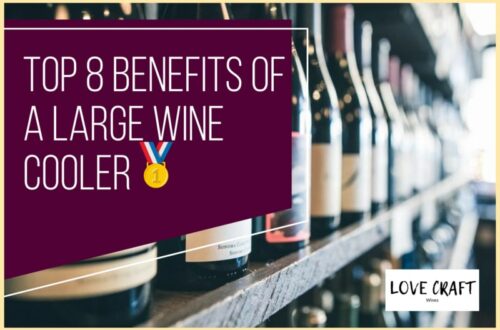Are you trying to maintain a keto diet but also enjoy a glass of wine with your meal? The question of whether wine can be included in a keto diet is a common one.
On one hand, wine is often associated with carbohydrates, which are restricted in a keto diet. On the other hand, wine has been shown to have potential health benefits, such as reducing the risk of heart disease and increasing longevity.
So, can you have your wine and stay in ketosis too? To answer that question, it’s important to first understand the basics of the keto diet and the role of carbohydrates in it.
A keto diet is a high-fat, low-carbohydrate diet that puts your body in a state of ketosis, where it burns fat for energy instead of carbohydrates. The goal is to keep your carbohydrate intake below a certain threshold, typically 20-50 grams per day, so your body switches to burning fat instead of glucose.
But where does wine fit into this equation? We’ll explore the nutritional value of wine and how to choose the right wine to fit into a keto diet.
Table of Contents
Understanding the Basics of the Keto Diet
You’ll need to familiarize yourself with the fundamental principles of the ketogenic diet before determining what types of beverages can be consumed while on this nutritional plan.
The keto diet is a high-fat, low-carb diet that encourages the body to enter a state of ketosis, where it burns fat for energy instead of glucose.
To achieve ketosis, it’s important to limit your daily carbohydrate intake to 20-50 grams per day and increase your consumption of healthy fats.
To make meal planning easier, there are many keto-friendly recipes available online that incorporate healthy fats like avocado, coconut oil, and nuts.
One of the key principles of the keto diet is to limit your intake of carbohydrates.
Carbohydrates are the body’s primary source of energy, but on a keto diet, they are limited to encourage the body to burn fat instead.
This means that you’ll need to avoid foods like bread, pasta, rice, and sugar, as well as most fruits and starchy vegetables.
However, there are many delicious and satisfying foods that are allowed on the keto diet, including meat, fish, eggs, cheese, and non-starchy vegetables like leafy greens, broccoli, and cauliflower.
By focusing on these foods and limiting your carbohydrate intake, you can achieve and maintain a state of ketosis and enjoy the many benefits of the keto diet.
The Role of Carbohydrates in the Keto Diet
Understanding the role of carbohydrates is essential for anyone looking to follow a successful ketogenic lifestyle. Carbohydrate sources are typically the primary source of energy for the body, but on a keto diet, they are restricted to a minimum.
It’s important to note that not all carbohydrates are created equal, and some are more keto-friendly than others. For instance, foods high in refined sugars such as candy, soda, and baked goods should be avoided, while low-carb vegetables such as broccoli, spinach, and cauliflower can be enjoyed in moderation.
To further optimize your keto diet, incorporating keto-friendly alternatives to high-carb foods is essential. For example, swapping regular pasta for zucchini noodles or spaghetti squash, and using almond flour instead of regular flour for baking can help you stay within your daily carb limit while still enjoying your favorite meals. By making these small changes, you can continue to enjoy a varied and satisfying diet while remaining in ketosis.
Moving on to the next section, let’s take a closer look at the nutritional value of wine and whether it can be included in a keto diet.
The Nutritional Value of Wine
It’s not often that we associate alcohol with nutrition, but surprisingly enough, there are some unexpected health benefits to be found in a glass of vino.
Wine is a great source of antioxidants, which can help reduce inflammation and fight against free radicals. Red wine, in particular, has been shown to improve heart health by increasing HDL (good) cholesterol and decreasing LDL (bad) cholesterol levels.
However, it’s important to note that these benefits only come with moderate consumption, as excessive alcohol intake can lead to health drawbacks such as liver damage and increased risk of certain cancers.
When it comes to the keto diet, wine can be included in moderation, but it’s important to keep in mind the recommended serving size.
One 5-ounce glass of wine contains around 120 calories and 4 grams of carbohydrates, which can add up quickly if multiple glasses are consumed.
It’s also important to choose the right wine, as some varieties can contain higher amounts of residual sugar.
In the next section, we’ll discuss how to choose the right wine for a keto diet.
Choosing the Right Wine for a Keto Diet
If you’re looking to make the most of your nutritional choices, it’s important to be mindful of the types of alcoholic beverages you consume, and that includes knowing how to choose the right options when it comes to your wine selection.
Here are some tips to keep in mind when selecting wine for a keto diet:
-
Choose dry wines: Dry wines have less residual sugar than sweet wines, making them a better option for a keto diet. Look for wines with a lower percentage of residual sugar to ensure you’re keeping your carb count low.
-
Stick with red wines: Red wines tend to have lower carb counts than white wines and are usually a better option for a keto diet. Popular red wine varietals include Cabernet Sauvignon, Pinot Noir, and Merlot.
-
Pairing suggestions: If you’re looking for a wine that will pair well with your keto-friendly meals, consider a dry red wine like Pinot Noir or Cabernet Sauvignon with a steak or grilled meat dish.
-
Check the alcohol content: High alcohol content can lead to dehydration and potentially knock you out of ketosis. Stick to wines with an alcohol content of 13.5% or less to avoid this issue.
By following these guidelines, you can make an informed decision when it comes to selecting wine on a keto diet. However, it’s important to remember that moderation is key.
Moderation and Other Considerations
You’ve got to be honest with yourself and recognize that drinking too much alcohol can wreak havoc on your health and fitness goals, even if it feels like a fun and easy way to let loose after a long week.
When it comes to wine and a keto diet, moderation is key. Portion control is essential, as even a small amount of wine can quickly add up in terms of calories and carbohydrates. It’s recommended to stick to one glass of wine per day or fewer, and to choose a dry wine with lower alcohol content to minimize the impact on your ketosis.
In addition to portion control, there are other considerations to keep in mind when including wine in a keto diet. For example, some people may experience adverse effects from consuming alcohol, such as dehydration or disrupted sleep.
It’s also important to be aware of any medications you are taking that may interact with alcohol. Consulting with a healthcare professional can help you make an informed decision about whether wine is right for you and your keto goals.
Remember, while a glass of wine can be a nice treat, it’s always best to approach alcohol consumption with mindfulness and balance.
Frequently Asked Questions
Can wine be consumed in unlimited quantities while following a keto diet?
While wine can be included in a keto diet, it’s important to be mindful of the limitations. Consuming wine in unlimited quantities may hinder your progress as alcohol can slow down your metabolism.
Additionally, wine contains carbohydrates which can add up quickly if you’re not careful. However, there are plenty of keto-friendly alternatives to wine that you can choose from such as spirits like vodka or gin.
Just be sure to mix them with low-carbohydrate mixers like soda water or sugar-free tonic water. Ultimately, moderation is key when it comes to incorporating wine into a keto diet, so be sure to track your intake and choose your beverages wisely.
Does the type of wine, such as red or white, affect its compatibility with the keto diet?
When it comes to choosing between red and white wine on a keto diet, it’s important to consider the nutritional value of each.
Red wine, for example, contains higher levels of antioxidants and resveratrol, which have been linked to improved heart health and reduced inflammation.
On the other hand, white wine tends to have fewer carbs and calories, making it a better option for those closely monitoring their intake.
Ultimately, the choice between red and white wine comes down to personal preference and dietary goals.
So, whether you’re sipping on a rich red or a crisp white, make sure to enjoy it in moderation and as part of a balanced keto diet.
Are there any negative effects of consuming wine while following a keto diet?
Consuming wine while following a keto diet can have negative effects on your ketosis and weight loss goals. Alcohol, including wine, can reduce the body’s ability to burn fat for energy and can lead to a decrease in ketone production.
Additionally, alcohol consumption can lead to increased appetite and decreased inhibitions, potentially leading to overeating and derailing your weight loss progress. It’s important to consume wine in moderation and consider the impact it may have on your overall diet and health goals.
Can wine be used as a substitute for carbohydrates in a keto diet?
Looking for wine alternatives to keep your keto diet on track? You’ll be pleased to know that there are a variety of keto-friendly wine recipes available that won’t derail your progress.
In fact, you can even use wine as a substitute for carbohydrates in some recipes. For example, try using dry red wine in place of balsamic vinegar for a salad dressing that’s both delicious and low-carb. Or, swap out sweet vermouth for dry vermouth in your favorite cocktail recipe.
With a little creativity, you can enjoy wine while staying true to your keto lifestyle.
Is it okay to consume wine while in a state of ketosis?
Drinking wine while in a state of ketosis is not recommended as it can have negative effects on your body. Alcohol and ketosis don’t go hand in hand as alcohol is processed differently than other macronutrients, and our liver prioritizes processing it.
This means that while your body is breaking down alcohol, it’s not breaking down fats, which is the primary goal of a ketogenic diet. Additionally, alcohol consumption can lead to dehydration, which is already a common side effect of ketosis.
If you do choose to consume wine while in ketosis, it’s important to keep in mind that it will affect your progress, so it’s best to limit your intake or avoid it altogether.
Conclusion
Congratulations, you now have a better understanding of whether wine can be included in a keto diet. As you learned, the keto diet is all about limiting carbohydrates and increasing fat intake in order to enter a state of ketosis.
While wine does contain carbohydrates, it is still possible to enjoy a glass or two while adhering to the principles of a keto diet. However, it’s important to choose the right type of wine and drink in moderation.
Dry wines like Cabernet Sauvignon and Chardonnay are lower in carbohydrates compared to sweet wines like Moscato and Riesling. Additionally, it’s important to keep in mind that excessive alcohol consumption can lead to dehydration and hinder weight loss efforts.
In conclusion, incorporating wine into a keto diet is possible as long as you choose the right type of wine and drink in moderation. Remember, the key to success on a keto diet is to stay within your daily carbohydrate limit while still enjoying the foods and beverages you love.
With a little bit of planning and discipline, you can still enjoy a glass of wine while staying on track with your keto goals.





